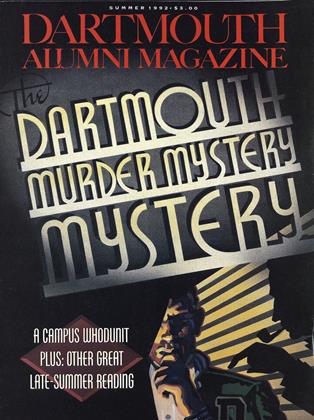Wonder, greed, and unforgiving nature.
HORACIO QUIROGA, The Exiles andOther Stories (University of Texas Press, 1987)-A collection by a masterful short-story writer that is worthy of every consideration for both its social concerns and esthetic achievements. Set in the forests of Misiones by the Parana river, these stories focus on common people, landowners, bosses, and the precarious relations among them, relations that are farther exacerbated by an unforgiving nature.
JOSE EUSTACIO RIVERA, TheVortex (Putnam, 1935) A maddening book in many respects, and the most important of the genre. A couple flees the city to escape civilized constraints only to be separated by circumstance. The protagonist's megalomaniac search for his beloved is a high point in Latin American letters. Notable also for it's condemnation of the tappers' plight, the last line of this novel hung in the air as the final note of "A Day in the Life" did for music listeners many years later.
ROMULO GALLEGOS, Canaima (University of Oklahoma Press, 1989)—Initially published in 1935, this novel by the Venezuelan author and ex-President Gallegos uses an Amerindian myth as its structuring device of battle between the forces of good and evil in the rainforest and in every character. It is also a timely evocation of the depredations unleashed on the wilderness and its native inhabitants by individuals driven by greed and fury on the Venezuelan frontier.
ALEJO CARPENTIER, The Lost Steps (Noonday Press, 1989) Again, a flight from the polis takes the protagonist through the Ages of Man to find the origins of music. Erudite and baroque in style, Carpentier's novel brings the rainforest narrative into the new currents of Latin American writing with intimations of magic realism and post-war angst.
JOSE TORIBIO MEDINA, editor, The Discovery of the Amazon (Dover, 1988)—This book contains the account written by the monk Carvajal of the expedition by Francisco de Orellana. The chronicle of the navigation of the Amazon stands as one of the most exciting exploration narratives yet written.
WERNER HERZOG, "Fitzcarraldo" This lengthy film, which is set in the heyday of the rubber boom, contains the most typical imagery and topical themes discussed in my freshman seminar on rainforest narratives: the wretched excess and greed of the short-lived boom, the clash between the Amerindian and European belief systems, the individual will to conquer and prevail over nature, and capitalist idealism.
 View Full Issue
View Full Issue
More From This Issue
-
 Cover Story
Cover StoryThe Dartmouth Murder Mystery Mystery
June 1992 By Robert Sullivan '75 -
 Feature
FeatureFloating Home
June 1992 By Jim Collins '84 -
 Feature
FeatureLast Person Rural
June 1992 By Noel Perrin -
 Feature
FeatureThe Woman Who Was Not All There
June 1992 By Paula Sharp '79 -
 Feature
FeatureWhy in The World: Adventures in Geograhy
June 1992 By George J. Demko with Jerome Agel and Eugene Boe -
 Feature
FeatureMurder on Wheels
June 1992 By Valerie Frankel '87







